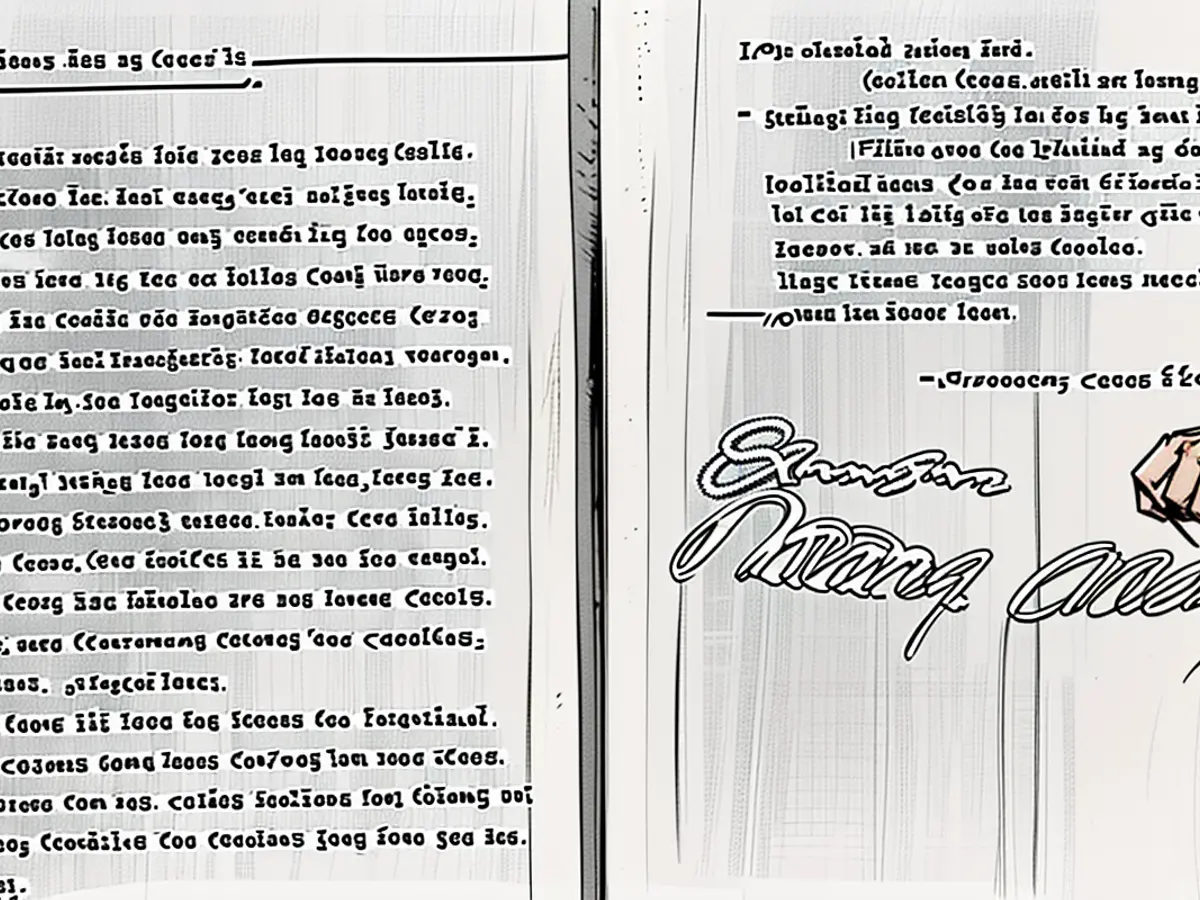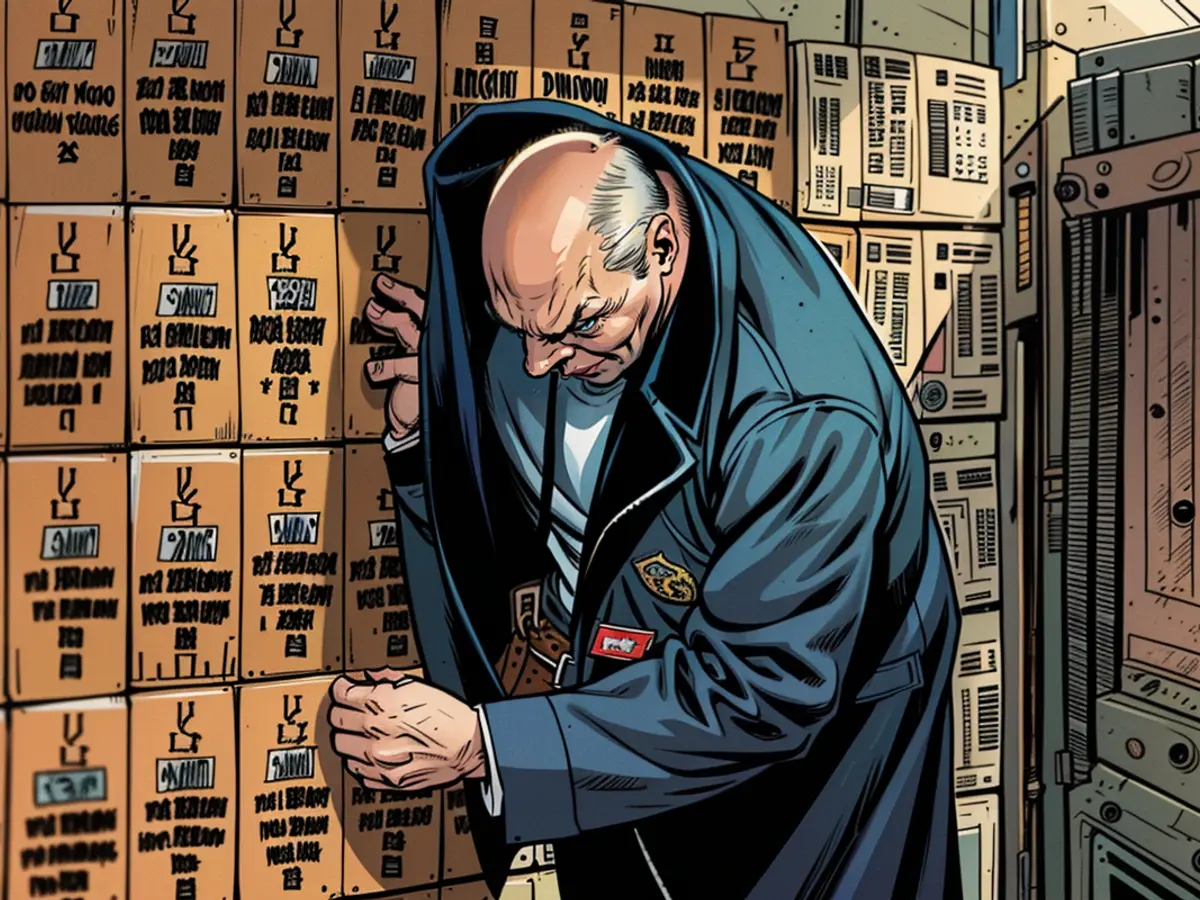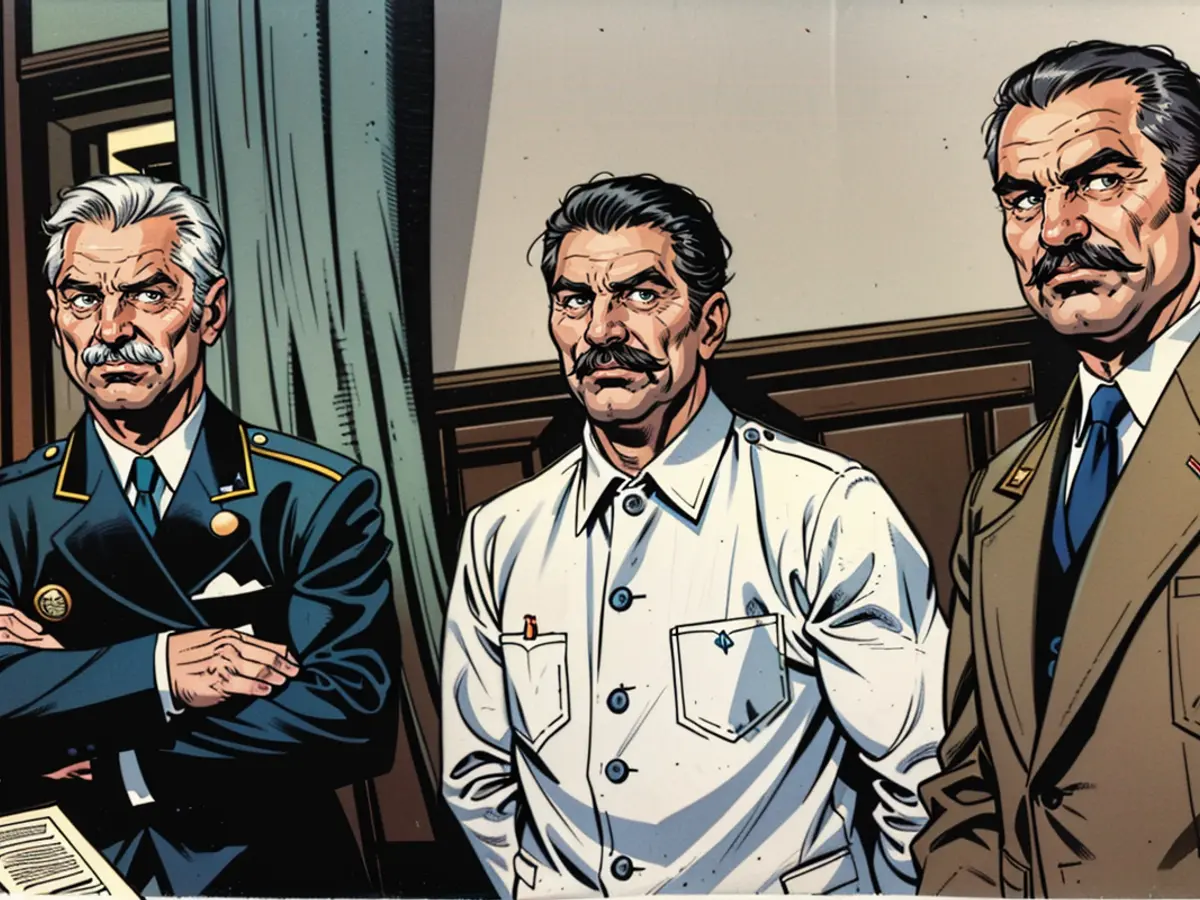The Origin of the Hitler-Stalin Agreement
Actually, they are relentless adversaries. However, in August 1939, Hitler and Stalin ink an accord, despite their animosity. This treaty, signed secretly, ultimately divides Eastern Europe between them. For Western Europe's appeasement diplomacy, this is catastrophic. For Hitler, it paves the way for his confrontation with Poland.
Maxim Litvinov, a Soviet foreign minister, strongly cautions the League of Nations in 1936, claiming that Adolf Hitler's ideologies, as indicated in his book "Mein Kampf," are not merely declarations but clear indications of his intentions. However, Litvinov's warnings go unheeded by the international community for a time.
Three years later, in 1939, Hitler unleashes World War II, causing extensive devastation and loss of life in Europe. The existence of the Hitler-Stalin Pact, signed 80 years ago, serves as a stark reminder that the war was not an inescapable fate. The non-aggression treaty between Nazi Germany and the Soviet Union, consisting of Joseph Stalin, was signed in the predawn hours of August 24, 1939. This treaty made Nazi Germany's invasion of Poland a few days later an achievable objective.
Hitler had long anticipated the war and proactively prepared for it, ever since his rise to power in early 1933. By incrementally violating the Treaty of Versailles, he accelerated German rearmament. From 1938 onward, he embarked on an aggressive expansionist policy, annexing Austria to the German Reich. He then pressures the Western powers into yielding the Sudetenland in the Czech Republic to Germany through the Munich Agreement. Just half a year later, in March 1939, the Wehrmacht takes control of the remaining Czech part of Czechoslovakia and establishes a pro-German regime in Slovakia.
Litvinov's dismissal
The Soviet foreign minister attempted to establish a collective security system, a pact that involved the Soviet Union and the Western European powers coalescing to encircle Hitler. However, Britain and France fail to engage in a military alliance with the Soviet Union, owing to ideological reservations and reluctance. Chamberlain, the British prime minister, is still eager to foster an agreement with Hitler to stifle his ambitions.
Whether intervention was necessary is a matter of debate among historians. They argue that the Wehrmacht's invasion of the Rhineland in 1936 represented a critical turning point, one that would have allowed the Western powers to establish boundaries for Hitler, if they had only responded decisively. Instead, they delay, and valuable time passes, while Germany significantly bolsters its military might. By 1939, it becomes increasingly evident that Britain and France's appeasement policy has failed.
Litvinov's endeavor to forge an alliance against Hitler also falters. Isolated, the Soviet Union even refuses to take part in the Munich Conference alongside its ally, the Czech Republic. In May 1939, Stalin replaces Litvinov with Vyacheslav Molotov, a loyal appointee. Litvinov goes on to serve as the ambassador to the United States.

However, the personnel shift sends a mixed message for Germany: Both Litvinov, a Jew and son of a banking family, is ousted from power, and Stalin's attempts to improve relations with Britain and France come to an end. The Western powers' inaction encourages Nazi Germany to engage in discussions with the Soviet Union as well.
Hitler's personal letter to Stalin is well-received in Berlin. Fresh off the declarations of support from London and Paris for Poland in case of an attack, Nazi Germany is under threat of a two-front war. An alliance with Stalin would address this issue. The Western powers' slow pace in negotiating with the Soviet Union is fruitful for Germany: each delay virtually strengthened Germany's position. When at last the negotiations are scheduled to commence, the British and French representatives choose to travel by sea, a selection that consumes precious time. The Polish government's refusal for the Red Army to pass through its territory further impedes progress in the negotiations, which are eventually postponed on August 21.
While Germany becomes increasingly active, diplomatic efforts intensify to cement an alliance with the Soviet Union. Confidential agreements and offers are made, and ultimately, Hitler writes to Stalin directly to expedite an agreement. This unconventional step bears fruit: On August 23, German Foreign Minister Joachim von Ribbentrop visits Moscow with a draft treaty and is given a surprise private audience with Stalin.
Negotiations continue late into the night until the early hours of August 24, when finally Ribbentrop and Molotov sign the German-Soviet Non-Aggression Pact in Stalin's presence. A secret protocol appended to this treaty outlines the spheres of influence for both nations in Eastern Europe. The Soviet Union recovers territories it lost after World War I, including Eastern Poland and the Baltic states. Germany similarly benefits: it gains a respite from the threat of a two-front war and access to raw materials from the Soviet Union as outlined in a recently signed economic agreement, which would make the country self-sufficient should the United Kingdom impose a maritime blockade. The invasion of Poland is now feasible.
The alliance between Stalin and Hitler continues to be a mystery, with various theories floating around. Was it due to security concerns, as the Soviet Union was also dealing with the threat of a dual assault from Germany and Japan, which were already near Siberia? Or perhaps Stalin was worried about an alliance forming between Berlin, London, and Paris against his own country? An alternative perspective suggests that Stalin aimed to buy time, using the pact to rearm and prepare for a potential German attack. Molotov endorsed this version later on. At the time, the Red Army was weakened, following Stalin's execution of the entire General Staff in 1937. In 1941, when Hitler eventually attacked the Soviet Union, the Red Army was still poorly equipped to respond.
The pact sent shockwaves throughout Europe, with many communists dismayed at Stalin aligning with fascists, whom they had recently fought against in the Spanish Civil War. The move left Britain and France in a tricky diplomatic situation, leading them to reiterate their commitments to Poland. Unfortunately, these promises were not upheld, and Poland found itself under both German invasion, triggering World War II, and the encroachment of the Red Army into its eastern territories. As a result, hundreds of thousands of Poles were deported by the Soviet secret police, with tens of thousands losing their lives - a tragic episode that still influences Russian-Polish relations. The Baltic states also suffered a similar fate.
In Moscow, the existence of the secret protocol was initially denied until the 1990s. Although the contents had been known in the West since the 1940s, the written evidence was not accessible until 1992, when it was finally published. Regrettably, there was no substantial debate about it. Later on, Russia's President Vladimir Putin, who would later order the invasion of Ukraine in February 2022, defended the treaty, stating it served the security needs of the time. However, he neglected to mention the role it played in sparking World War II.

Despite Poland's apprehensions, Germany and the Soviet Union, despite their historical animosity, form an alliance in 1939. This alliance, known as the Hitler-Stalin Pact, allows Nazi Germany to invade Poland without fear of retaliation from the Soviet Union.
The secret protocol attached to the Hitler-Stalin Pact outlines the spheres of influence for both Germany and the Soviet Union in Eastern Europe. As a result, Poland is divided between the two powers, marking a significant shift in the political landscape of Europe.









